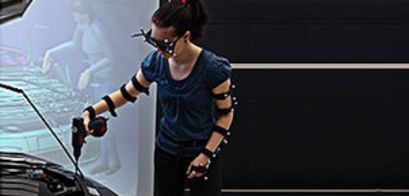Scientific Background
Digital engineering is the complete integrated support of all industrial processes throughout the product life cycle with the aid of digital methods and tools. Digital data models (CAD; FEM simulation and software models) of products, which have been created during development, serve as the basis for this. Digital engineering aims to implement the data models also created in the subsequent phases of the product life cycle. Digital engineering is, thus, the logical continuation of virtual engineering.
Digital engineering cuts the time and expenses required for the development, start-up and production of machinery, plants and products. It makes it possible to continue using digital product data profitably to manage the entire product life cycle, e.g., staff training with virtual interactive learning scenarios, technical marketing or documentation.
Project and Objectives
The primary objective of the project “SEAR DE” is the establishment of a sustainable, collaborative partnership between Germany and Thailand in the field of digital engineering. To this end, three key priorities are being pursued:
- Technology transfer: institutionalization/establishment of a national center of excellence in digital engineering in Thailand
- Sustainable transfer of expertise by collaborating on qualification and education
- Initiation and completion of bilateral research and development projects with the involvement of industry partners
Aspects of Research Structure
The establishment of a joint research structure is divided into two phases. Priorities in the first phase will be the analysis of demand, the preparation and initiation of qualification actions, networking with local research and industry partners and the establishment of a laboratory for digital engineering.
The priority in the second phase will be the sustainable development of bilateral collaboration. Joint research and development projects will be initiated and completed with the involvement of the public and private sector. A joint degree program in the field of digital engineering will develop expertise in the long term.








